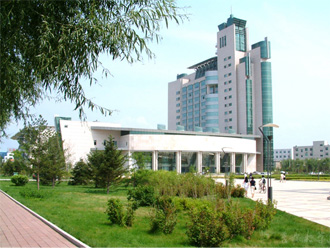- Department of Economics
- World Economic Research Institute
- Regional Economic Research Institute
- Institute of Population Resources and Environment
- Institute of International Politics
- Institute of History and Culture

Cultivation objectives:
1. To have good moral characters, rigorous scientific attitudes and professionalism. To master the comprehensive and solid basic theory and systematic in-depth expertise in this subject field, and have the ability to independently engage in innovative scientific research.
2. To have good psychological quality, strong oral expression skills, writing skills, and profound cultural and philosophical accomplishments. To have the ability to independently engage in scientific research, and be able to creatively study and solve relevant theoretical and practical problems of population, resource and environmental economics. To be proficient in a foreign language, and be able to participate in international academic exchanges and engage in relevant professional practice in the foreign language.
3. After graduation, to be able to adapt to the needs of scientific research and teaching of population, resource and environmental economics and related work. At the same time, to have a relatively broad knowledge structure and humanistic spiritual cultivation, and be capable of professional work and management work in relevant government departments, enterprises and institutions.
4. To exercise physical fitness and to have a healthy physique.
There are 3 research directions in this major:
Regional population and development: Focusing on the study of the mutual restriction and mutual influence between the regional population and economic society, and the coordinated development of regional population and economic society.
Resource and environmental economics: Focusing on the regularity of the coordinated development of population, resources, environment, and economy, and methods and strategies for rational use of resources and protection of the ecological environment.
Economic society and sustainable development: Focusing on the balanced and coordinated development of population, resources and environment, ecological, economic, and social system operation modes and sustainable development.
Professional courses are divided into two categories: compulsory courses and elective courses. Compulsory courses (degree courses) include three sections: public courses, basic theory courses, and professional courses. Professional courses mainly include population resources and environmental economics, population economics, sustainable development theory, environmental economics, research on population resources and environmental issues in Northeast Asian, and research on population resources and environmental issues in China.



